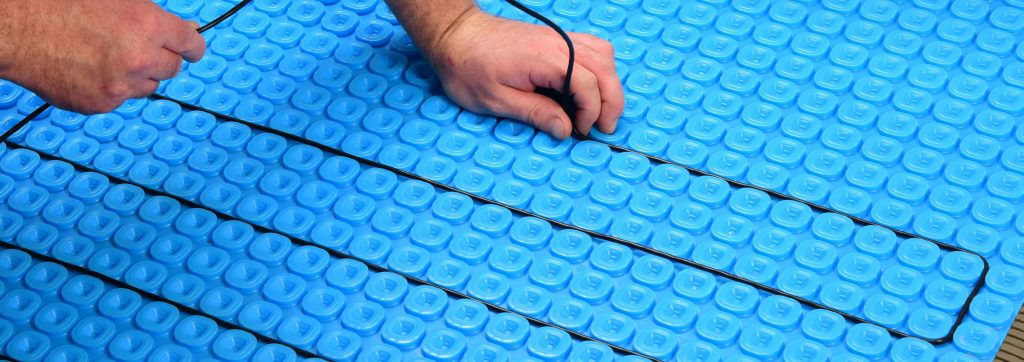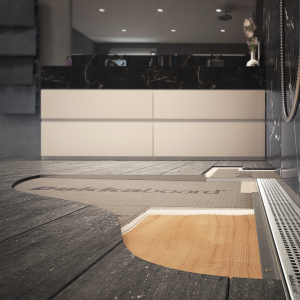Underfloor heating has become increasingly popular in modern homes due to its numerous benefits. It provides efficient and comfortable heat distribution throughout a room, eliminates the need for radiators, and offers a luxurious touch to any space. One common question that arises is whether underfloor heating can be installed under any kind of floor.
Compatibility of Underfloor Heating with Different Flooring Types
- Porcelain and Ceramic Tiles: Porcelain tiles are known for their exceptional thermal conductivity and durability, making them an ideal match for underfloor heating systems. These tiles have low heat resistance, which allows heat to transfer efficiently from the heating system to the floor surface, providing a consistent and comfortable warmth throughout the room.
- Engineered Wood and Laminate: Underfloor heating can be used with engineered wood and laminate flooring. However, it is important to ensure that the flooring material is suitable for use with underfloor heating. Manufacturers often provide guidelines and specific instructions regarding the compatibility of their products with underfloor heating. It is crucial to follow these guidelines to prevent any damage to the flooring.
- Natural Stone: Many natural stone floorings, such as granite and limestone, can be used with underfloor heating. However, it is essential to consider the density and thickness of the stone, as well as its ability to conduct heat. Thicker stones may take longer to heat up, which can affect the efficiency of the heating system. It is advisable to consult with a professional to determine the compatibility of specific stone materials with underfloor heating.
- Carpets and Vinyl: While underfloor heating can be used with carpets and vinyl flooring, their thermal resistance may hinder the efficiency of heat transfer. These flooring types act as insulators, restricting the heat from reaching the room effectively. To achieve satisfactory results, it is recommended to select carpets and vinyl flooring with low thermal resistance and seek professional advice on the suitability of the specific materials.
Advantages of Porcelain Tiles for Underfloor Heating
- Thermal Conductivity: Porcelain tiles have excellent thermal conductivity, meaning they efficiently transfer heat from the underfloor heating system to the surface. This allows for quick and consistent heat distribution throughout the room, ensuring a comfortable environment.
- Durability: Porcelain tiles are highly durable and can withstand the temperature fluctuations associated with underfloor heating systems. They are resistant to cracking, warping, and other forms of damage, making them a long-lasting flooring option.
- Even Heat Distribution: Porcelain tiles allow for even heat distribution across the entire floor surface. This eliminates the problem of cold spots or uneven heating, ensuring that every corner of the room receives the same level of warmth.
- Hygienic and Easy to Clean: Porcelain tiles are non-porous, making them resistant to stains, bacteria, and allergens. They are easy to clean and maintain, promoting a hygienic environment.
Underfloor heating can be installed under various flooring types, but not all floors are equally compatible with this heating system. Porcelain tiles stand out as the ultimate flooring choice for underfloor heating due to their excellent thermal conductivity, durability, even heat distribution, and easy maintenance. When considering underfloor heating, it is essential to consult professionals and manufacturers’ guidelines to ensure the compatibility of the chosen flooring type. By making informed decisions, you can create a cozy and comfortable living space with the added luxury of underfloor heating.





